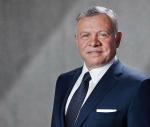You are here
Syrian refugees offered full range of subsidised medical services — report
By JT - Mar 28,2016 - Last updated at Mar 29,2016
AMMAN — Syrian refugees have increased the occupancy ratio at public hospitals, while the ratio of prescriptions has increased by no less than 30 per cent due to the mounting demand on these services, official figures indicated.
According to a periodical report launched by the office of the government’s human rights coordinator, Basil Tarawneh, issued every two years to update the situation of medical care offered to Syrian refugees, all medical services were offered to the refugees free of charge until November 2014.
After that date, Syrian refugees were charged for the services, which are subsidised by 80 per cent, treated equally with non-insured Jordanians. The decision to levy fees was dictated by the rising cost of medical care, according to the report, which was released on Monday.
Nonetheless, maternal medical care, medicines for Thalassaemia patients and vaccines are still offered at no cost to both Jordanians and Syrians.
Pressures on the health sector, the report indicated, include a lower operational age of medical devices and increased workload of the medical staff, among other strains.
Moreover, some diseases that were eradicated in Jordan have appeared among refugees, which required a sequence of vaccination campaigns, “which are costly and require a lot of efforts”, the document said.
Some 1,441,084 vaccines have been given to refugees, according to the report, which added that around 233,455 Syrian patients used the services of Health Ministry hospitals in 2014, whereas in 2015, the figure was 83,857.
In 2014, around 20,238 patient refugees were admitted to hospitals, while in 2015, the number reached 10,880 patients who stayed overnight in health facilities.
Moreover, 5,450 underwent surgeries in 2014, compared to 2,685 in the following year.
In 2014, a total of 504,962 Syrian patients benefited from the services of health centres while in 2015, around 169,000 patients used the services of health centres.
Jordan’s population is 9.5 million, according to the 2015 population census, and Syrians constitute 20 per cent of that population, amounting to 1.266 million, the treatment of whom cost around JD1.4 billion since the beginning of the Syrian refugee influx until the end of 2015, according to the report.
The most significant cases among refugees are war injuries, such as lost limbs from shell bombing as well as cases related to mental health like anxiety, depression and bipolarity.
The report shows that cancer cases among Syrian refugees in Jordan increased from 2011 to 2013 respectively as follows: 134, 188, and 317 cases.
In addition to the Health Ministry’s hospitals and health centres that receive Syrian refugees, the ministry facilitates the work of around 60 associations and organisations that offer medical services to the refugees.
Primary healthcare services offered to refugees include vaccination, under a national programme, epidemiological surveillance, treatment of communicable diseases and full supervision on health in schools built for refugees.
As for the environment, ministry cadres conduct supervision programmes mainly at the Zaatari, Mreijeb Al Fhoud and Azraq refugee camps where they, for example, analyse drinking to examine the water’s bacteriological nature.
The ministry also works continuously to enhance its facilities’ infrastructure to cope with the increasing numbers of patients.
Syrian refugees’ use of medical services in Jordan (2012-2015)
Number of Syrian Refugees | 2012 | 2013 | 2014 | 2015 |
Who used the services of Health Ministry's | 21,854 | 142,940 | 233,455 | 83,857 |
Stayed overnight at Health Ministry's Hospitals | 2,618 | 14,694 | 20,238 | 10,880 |
Underwent Surgeries | 391 | 4,108 | 5,450 | 2,685 |
Used the services of health centres | 43,372 | 246,148 | 504,962 | 168,813 |
Total | 68,235 | 407,890 | 764,105 | 266,235 |
Source: Office of Government Human Rights Coordinator
Related Articles
AMMAN — Fires in Ajloun’s forests last year destroyed 5,450 trees extending over an area of 2,000 dunums, the Jordan News Agency, Petra, quo
AMMAN — Royal Medical Services (RMS) Director General Maj. Gen.
Jordan and Saudi Arabia on Thursday underlined their advanced level of ties, especially in the medical sector.
















